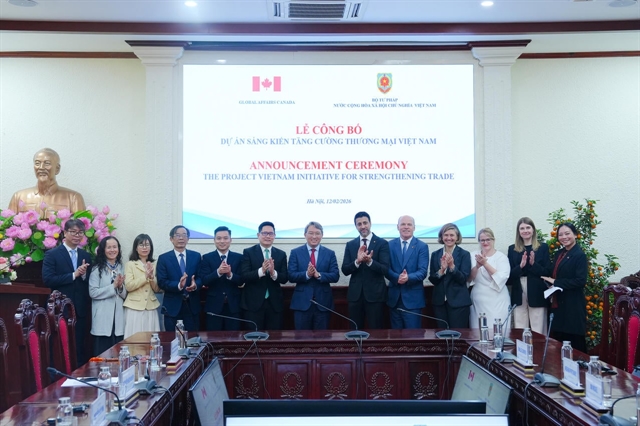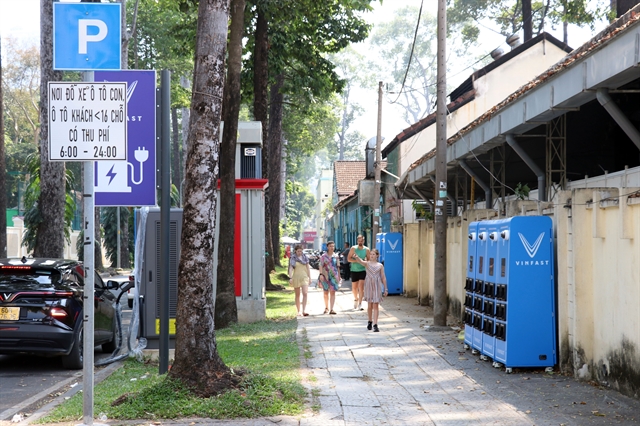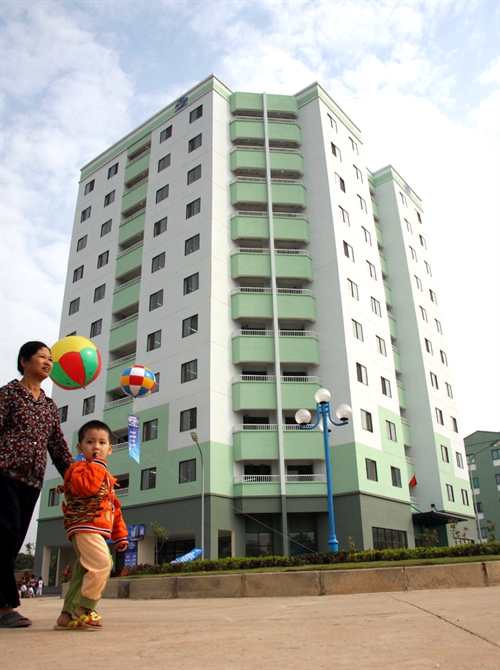 Economy
Economy

The Government is continuing with its efforts to boost the social housing development. While the disbursement of the housing stimulus package worth VNĐ30 trillion (US$1.43 billion) in preferential loans, which was due to be completed by the end of last month, was finally extended by the central bank, the policies for social housing development and purchase are now eyeing long-term measures.
 |
| An apartment building for low-income earners in Vĩnh Phúc Province’s Vĩnh Yên City. The Government continues to boost social housing development, after the VNĐ30 trillion housing stimulus package ended. - VNA/VNS Photo Tuấn Anh |
HÀ NỘI – The Government is continuing with its efforts to boost the social housing development.
While the disbursement of the housing stimulus package worth VNĐ30 trillion (US$1.43 billion) in preferential loans, which was due to be completed by the end of last month, was finally extended by the central bank, the policies for social housing development and purchase are now eyeing long-term measures.
The VNĐ30 trillion housing stimulus package, that began on June 1, 2013, was, in fact, meant to be a short-term solution by the Government when the real estate market had hit bottom, experts said.
As the June 1 initial deadline for the disbursement of the housing stimulus package approached, it triggered worries among buyers and developers. Management agencies and experts during the past months calmed the market saying there would be other preferential loans.
With the realty market on the path to recovery since the end of 2014 and proving to be more solid recently, the Government’s policies for social housing development are still being continued through long-term measures with the promulgation of the Government’s Decree 100/2015/NĐ-CP on social housing development and management, the central bank’s Circular 25 on preferential loans for buyers of social housing projects and Document 9496/NNHN-TD ordering the Việt Nam Bank for Social Policies (VBSP) to provide preferential loans for social housing buyers.
The orders came into effect in December.
In the latest move, Prime Minister Nguyễn Xuân Phúc recently signed a decision on preferential loan interest rates provided by VBSP to buyers of social housing apartments as part of efforts to implement Decree 100.
Accordingly, the rate until the end of the year will be 4.8 per cent annually, much lower than the popular rate of commercial banks for house purchases at some 8-9 per cent, and will be applicable for all existing outstanding loans.
However, VBSP was waiting for more detailed instructions, Nguyễn Tuấn Ngọc from the bank’s International Co-operation Department said.
The Government’s Decree 100 said the funds would partly come from the State and local budgets, and bond issuances.
How the Government funded the VBSP in providing loans to develop the social housing sector remained a problem that would need to be explained more explicitly, Trần Ngọc Quang, general secretary of the Việt Nam Real Estate Association (VNREA), said.
Improving infrastructure
The problem currently is how to improve the supply of social housing projects as developers are still hesitating to invest in this segment, despite incentives, Trần Du Lịch, deputy head of the HCM City National Assembly Delegation, said at a forum on Wednesday organised by the Thanh Tra (Inspector) newspaper in collaboration with the VNREA.
Since land prices in the downtown area (HCM City) are high, social housing projects are often developed on the outskirt areas, Lịch said, adding that policies to improve infrastructure connectivity of social housing projects are of great importance. He said a transport planning mechanism should be developed.
He gave as an example a residential area in Japan, deserted for 20 years, which turned into a bustling area once an urban railway was built.
In addition, policies on land prices should be reviewed to encourage property developers to invest in social housing projects, Lịch said. “The demand for social housing projects in the next five years remains huge.”
Việt Nam is undergoing rapid urbanisation with urban citizens anticipated to rise to 46 million, accounting for 45 per cent of the country’s population by 2020.
Low-income housing demand was estimated to total more than five million units within the next 10 years.
At a conference in April, experts also urged low-income and social housing projects to go green with smart, energy-saving designs and improved infrastructure and facilities. - VNS